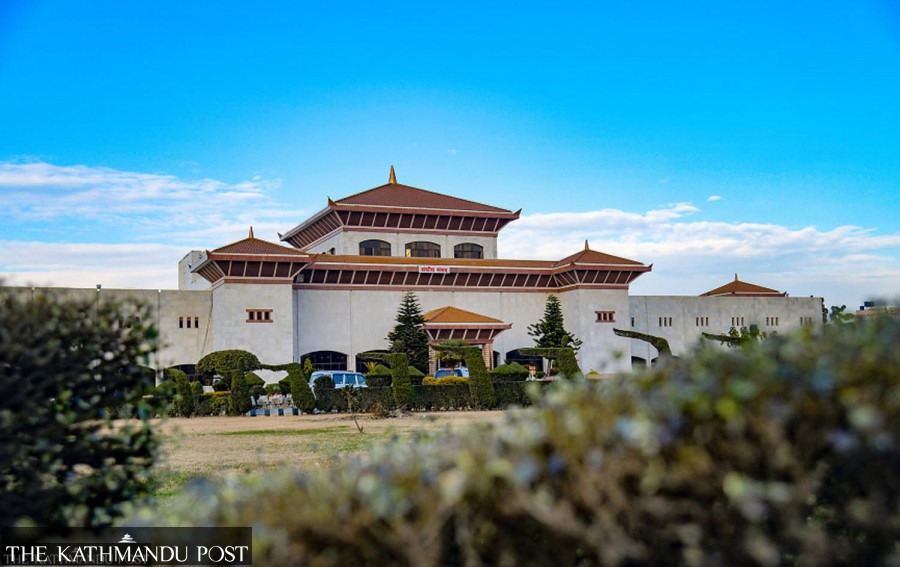Politics
Successive governments ignore directives on Dalit representation
Dalit lawmakers decry persistent discrimination despite political changes.
Binod Ghimire
In March last year, the National Assembly unanimously endorsed a resolution motion directing the government to end discrimination and oppression against Dalits and ensure their proportional representation in all state agencies and structures.
Appearing before the upper house, then-prime minister Pushpa Kamal Dahal committed to addressing the issues raised in the motion to the fullest extent possible. However, no Dalits were included in the Cabinet and his government overlooked the provision of proportional representation.
KP Sharma Oli, who succeeded Dahal, followed suit. The Oli government is without a Dalit Cabinet member. Rupa BK, a junior minister, is the only representative of the community in the 25-member Council of Ministers.
Like his predecessor, Oli has also overlooked their representation in other state agencies. Not a single ambassadorial candidate picked for 18 diplomatic missions is a Dalit. Dalits, considered the most marginalised community, comprise 14 percent of Nepal’s population. However, their representation in the state agencies is very low.
Dalit lawmakers have taken serious exception to successive governments’ indifference to the resolution motion. On Friday, they voiced their concerns at the Public Policy and Delegated Legislation Committee of the National Assembly and accused the government of perpetuating discrimination against their community. The House committee has got the charge of monitoring the implementation of the motion.
“The country has seen various political changes. However, the attitude of a certain group towards Dalits has not changed,” said Jagat Bahadur Parki, a lawmaker from the CPN (Maoist Centre). “I warn those in power that there could be a revolt from the Dalit community if the discrimination continues.”
The lawmakers representing the community said Dalits have been discriminated against everywhere including in Parliament. There are 14 committees under the House of Representatives and the National Assembly combined, but none of them has Dalit as its chairperson.
“The resolution motion was necessary as little attention was given to implementing the inclusive and non-discriminatory legal and constitutional provisions,” said Tul Prasad Bishwakarma, a Rastriya Janamorcha lawmaker. “Despite the commitment before the sovereign Parliament, nothing has been done to implement it.”
A sub-committee to monitor the implementation of the motion held discussions with the secretaries at the prime minister’s office and various ministers in different periods, but without any progress.
“No parliamentary committee has summoned responsible government officials to inquire about implementation status of the motion. This needs to be done immediately,” said Bhuwan Bahadur Sunar, coordinator of the monitoring committee.
Along with proportional representation, the 19-point motion envisions directing the government to act strictly against all sorts of discrimination in public and private spaces and to ensure proper legal actions against the culprits. It also wants the government to report to the upper house about the steps it has taken to create an equal and equitable environment for the Dalits.
The motion’s provisions also include free education for Dalit students up to the university level, and special reservations in vocational and technical education; assurance of social security to people from the community; and incentives to promote inter-caste marriages.
“Direct all tiers of governments to allocate budget for the awareness campaign against caste-based discrimination,” reads one of the points in the motion.
“Establish the offices of the Dalit Commission in all seven provinces and allocate necessary budget and resources so that they can effectively work to stop discrimination and oppression against Dalits and conduct monitoring.”
The motion has pointed out lax implementation of the laws that criminalise caste-based discrimination as a major reason the practice persists in Nepali society.
Responding to concerns of the lawmakers, Narayan Dahal, chairperson of the upper house, said it is vital for the entire House to stand together to put pressure on the government to implement the motion.
“Caste-based discrimination is not just a Dalit issue, it is a national issue that concerns all. This must be a common issue for everyone,” he said. “It is vital to summon relevant government authorities and give necessary directives for its implementation.”




 8.22°C Kathmandu
8.22°C Kathmandu















